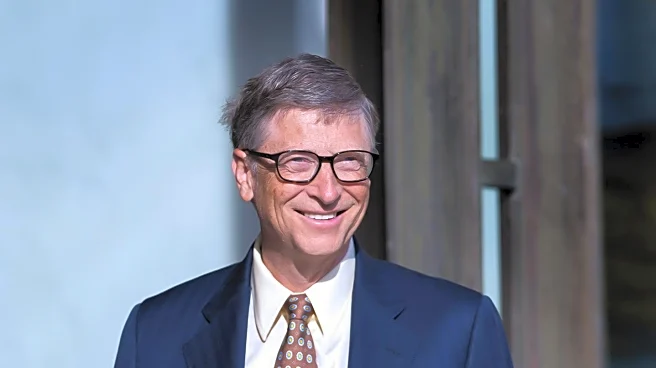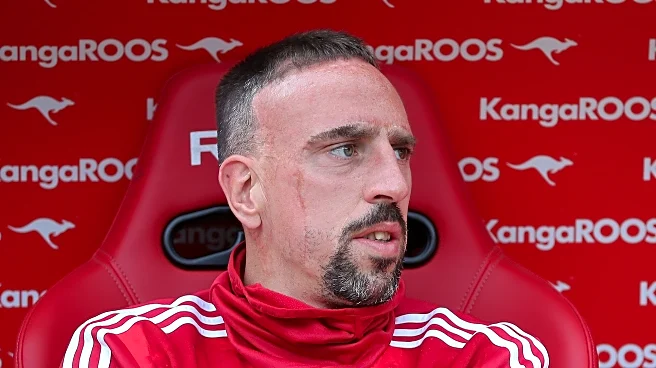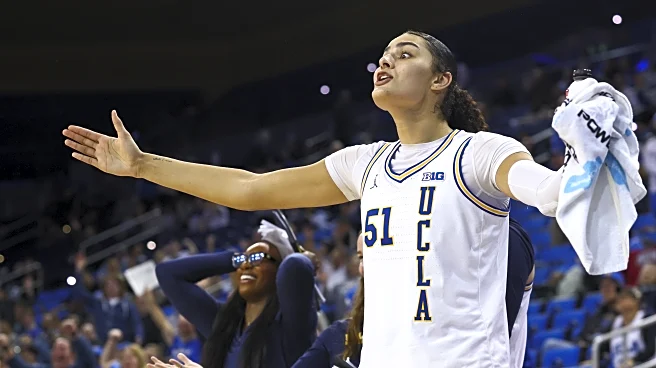What's Happening?
Bill Gates, co-founder of Microsoft and noted philanthropist, has expressed his commitment to supporting Alzheimer's research. In an extended interview with CBS News chief medical correspondent Dr. Jon LaPook, Gates discussed his personal connection to the
disease, which affected his father. Gates is backing research efforts aimed at understanding and combating Alzheimer's, a condition that impacts millions globally. His involvement underscores the importance of advancing scientific studies to find effective treatments and potentially a cure for Alzheimer's.
Why It's Important?
Alzheimer's disease is a major public health issue, affecting millions of individuals and their families in the U.S. Gates' involvement brings significant attention and resources to the field, potentially accelerating research breakthroughs. His support could lead to increased funding and collaboration among researchers, which is crucial for developing new therapies. The impact of Alzheimer's extends beyond health, affecting economic productivity and healthcare systems, making Gates' advocacy vital for societal well-being.
What's Next?
Gates' continued support may inspire other philanthropists and organizations to invest in Alzheimer's research. This could lead to new partnerships and funding opportunities, enhancing the scope and speed of scientific discoveries. Researchers may focus on innovative approaches to treatment and prevention, with Gates' backing providing a platform for broader public engagement and awareness.
Beyond the Headlines
Gates' involvement highlights ethical considerations in healthcare philanthropy, such as prioritizing diseases with significant societal impact. His personal connection to Alzheimer's may influence public perceptions of the disease, encouraging more open discussions and reducing stigma. Long-term, Gates' advocacy could shift cultural attitudes towards aging and cognitive health.















